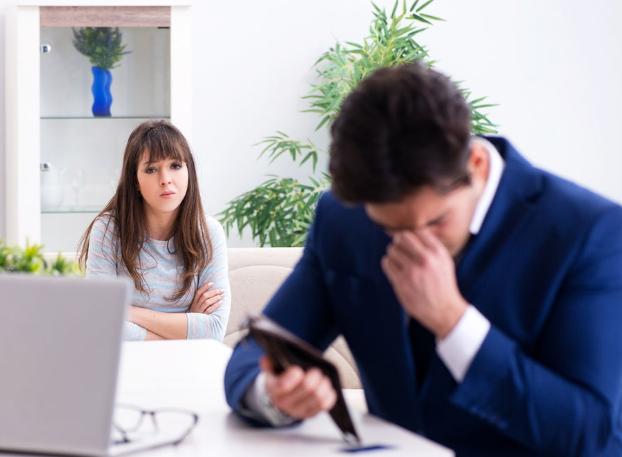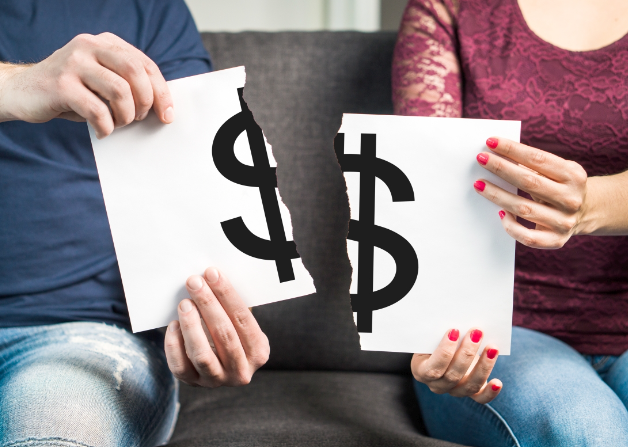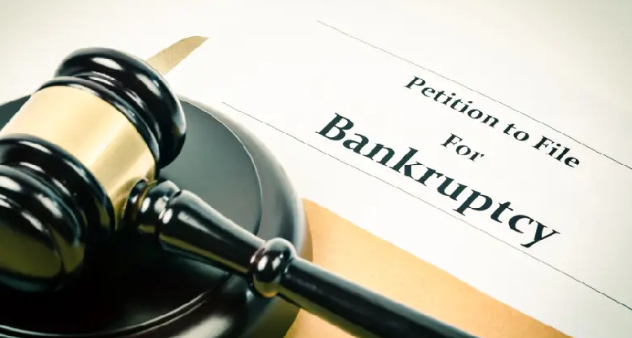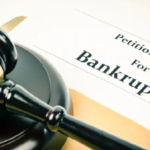How Do You Handle Bankruptcy After Divorce?
Many people find themselves in financial trouble after a divorce. Sometimes, the income of a couple is sufficient to support a household. However, when they live separately, it’s difficult to get by. The financial burden of a divorce agreement can be too great for some people. Our firm will guide you through bankruptcy following a divorce.
Consult an experienced Tenina Law bankruptcy attorney to learn about your debt relief options. We have helped many clients work through financial issues after divorce at the Tenina Law.

Automatic Stay after Divorce
After a divorce, bankruptcy can provide relief from collection calls and possible lawsuits, and you may have accrued significant debt during your divorce, or you may have acquired it afterward. You may have to deal with calls from collection agencies and creditor threats. You might even be faced with repossession or foreclosure of your vehicle or home. All of this can be stopped with bankruptcy following divorce.
The court will automatically issue a stay when you declare bankruptcy following divorce. The automatic stay will stop all collection practices including lawsuits, foreclosures, repossessions, and calls. You should give your attorney’s number to any creditor who calls or threatens you.
After Divorce, You Can Discharge Your Debts Through Bankruptcy.
After divorce, bankruptcy can be used to eliminate or manage most of your debts. Even though you and your spouse may have shared a lot of debt prior to the divorce, some may have been transferred into your name following the divorce. You can manage the majority of your debt through Chapter 7 or Chapter 13 bankruptcy.
After Divorce, You Can Discharge the Majority of These Types of Debts:
- Charge card debt
- Accounts with Collection Agencies
- Medical debt
- Personal Loans
- Utility bills that are past due
- Checks that were not honored (except for fraud)
- Students can borrow student loans if they can prove that the loan is a hardship.
- Deficit balances for repossession
- Personal Injury Claims
- Debts of businesses
- Rent and other amounts due under lease agreements
- Civil court orders
- Taxes that have been unpaid for a number of years
- Attorneys’ fees and charges
- Charge accounts
- Social Security and Veterans Assistance Overpayments
You will get rid of most of your debt if you file a Chapter 7 Bankruptcy. Chapter 7 bankruptcy is also known as “liquidation bankruptcy” and involves the collection of your debts. Some of your property may be sold to pay creditors. Most of your property is likely to be exempted from bankruptcy. Find out from an attorney how Chapter 7 bankruptcy could help you following a divorce.

Chapter 13 bankruptcy allows you to pay off some of your debts within three to five years. Chapter 13 bankruptcy is also known as a “reorganization” bankruptcy. You can consolidate all of your debts and manage them over an extended period. After your divorce, you can discharge some of your debt.
Debts That You Can’t Discharge With Bankruptcy After Divorce
Some debts are not dischargeable after a divorce. For example, you can’t discharge child support. Property settlements can be managed. A Chapter 7 bankruptcy will not eliminate property settlements. However, Chapter 13 can include them in a payment plan of three to five years. If you don’t repay the settlement completely in the repayment plan then bankruptcy could discharge the debt completely.
If you need to file for bankruptcy following a divorce, speak with an attorney right away. Some of your obligations will not be removed, but they can be handled in certain types of bankruptcy after divorce.
Support payments are a financial amount that:
- The ex-spouse will no longer receive the payment if he or she remarries or dies.
- Depends on the income of your ex-spouse;
- The monthly payment is made in regular installments.
- You were supposed to cover expenses and other needs for your ex-spouse.
You cannot eliminate a payment of support if you have filed for bankruptcy after divorce. In certain circumstances, however, you can include other payments ordered by your ex-spouse in your bankruptcy.
Paying Debts Through Bankruptcy After Divorce
If you declare bankruptcy after a divorce, you may be ordered to pay off some of your debts. To obtain any money available, creditors must fill out a proof-of-claim form and submit it to the federal bankruptcy court. Your bankruptcy trustee will examine any proof of claims forms submitted by creditors and determine the priority of debts. The debts that are deemed more important will be paid out first from your assets.
In most cases, your support arrearages are paid first. In some cases, you may need to sell off your property to pay back your debts including arrearages of support. The remaining funds may be used to pay off other debts.
What Happens if Your Ex-spouse Declares Bankruptcy?
After divorce, anyone can file for bankruptcy, even your ex-spouse. You may be liable for joint debts with your ex-spouse if you shared them. Divorce does not separate debt from creditors. still, you will be responsible for your debt regardless of whether you are married or not. You may be liable for debts if your ex-spouse declares bankruptcy and cancels their debts.
Consult a lawyer immediately if your ex-spouse has recently filed for bankruptcy, and you now have to pay what was once your joint debt. You may have options for managing that debt or you may also be able to file bankruptcy following divorce.
After Divorce, You Can Still File for Bankruptcy
You can start over if you decide to declare bankruptcy following a divorce. You can organize your finances and pay off any debts that you are unable to pay. After divorce or bankruptcy, you can move on with the help of a financial advisor and an attorney.
Recent legal issues have probably caused you to deal with many difficult situations. Divorce is a life-changing event, but it also can be a financial burden. Bankruptcy may help you eliminate some of the burden.

How to Get Back on Track?
We know the strain that financial difficulties can cause, especially after a difficult divorce. We will help you find the best debt relief option for your situation. Some divorce-related debts may be eliminated through bankruptcy. However, there are some that you cannot get rid of. A Tenina Law attorney will fight for your rights, and ensure that you get a fair process.
You cannot eliminate court-ordered child or spousal maintenance, but you can make up the back payments with a Chapter 13 plan. If you were required to pay debts, such as credit card bills, in the divorce settlement it may be possible for them to be eliminated completely through a Chapter 7 filing.
Contact Our Team of Attorneys Now!
You can see that you have many options in these situations. Our founding attorney Alla Tenina will explain the pros and cons of a specific course of action, and provide you with all the information needed to make an informed decision. Every client receives a personalized service. We will walk with you all the way through and be by your side until the end.
Tanina Law is here to answer all your questions regarding bankruptcy after divorce. Contact us today.






